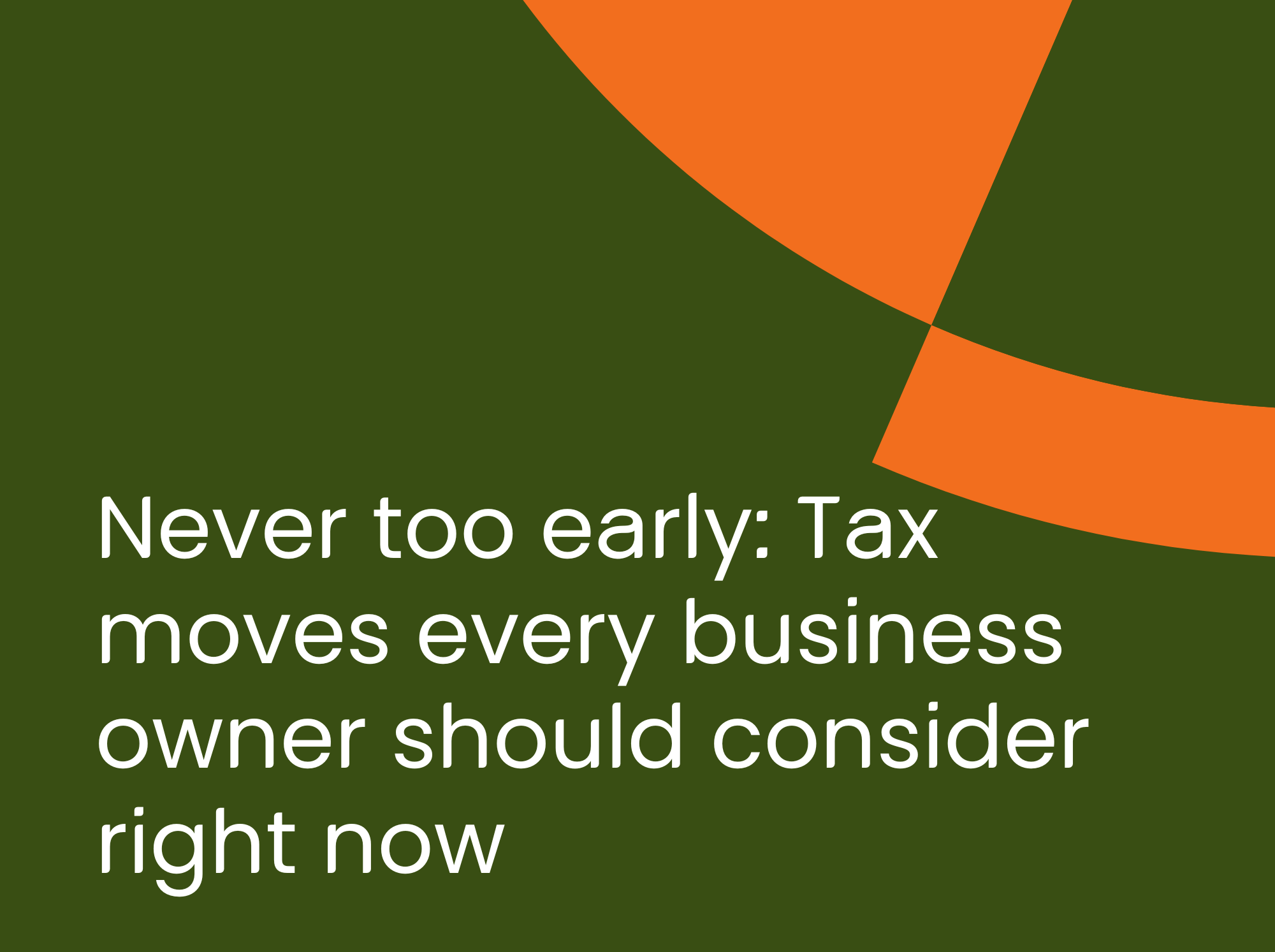Join Ferdi Alfajora for an in-depth interview of State and Local Tax (SALT). In this episode, Ferdi provides a general overview of SALT, common concerns and the key takeaways for business owners.
Listen Now:
For more information, please contact our SALT Team or visit our website:
SALT@pkfmueller.com
pkfmueller.com/services/tax-services/state-local-tax
Episode transcript:
[00:00:00] Ashley: Hi, I’m Ashley, And you’re listening to the “Business Owner’s Guide Podcast, Tips, Talks and Trends from a CPA.” Today we welcome Ferdi Alfajora from our tax department for discussion on State and Local Tax commonly referred to as SALT. But before we begin, let’s find out more about our guests
[00:00:21] Ashley: Ferdi is a Consultant in the Firm’s tax department here at PKF Mueller. He is also a key member of the Firm’s State and Local Tax Group, where he provides research and consulting services, dealing with multi-state income and franchise taxes, sales, and use tax credits and incentives, employment taxes, property taxes, and state and local planning.
[00:00:46] Ashley: Ferdi, first of all, thank you for being here today and let’s jump right in. Can you tell us a little bit more about PKF Mueller’s State and Local Tax Practice?
[00:00:54] Ferdi: Hi Ashley, thank you for having me. Yes, the PKF Mueller State and Local Tax Practice offers a lot of services, especially to our multi-state type of clients, right. To help them navigate the complexities of multi-state transactions.
[00:01:08] Ferdi: That includes apportioning and allocation of their income tax, uh, between states, voluntary disclosure agreements so that we can register them in states and minimize their income, uh, interest and penalties, registration of those businesses for the new businesses, sales and use tax, uh, representation and audits and income tax audits and other property tax audits, nexus study.
[00:01:34] Ferdi: Uh, so if a client has multi-state, transactions and not registered to do business. We can do a study to see if they should be registered in those states, both for income tax and sales and use tax.
[00:01:47] Ashley: In State and Local Tax, does that include tax preparation?
[00:01:50] Ferdi: You know, that’s a very good question, Ashley, I think whether you’re talking about international taxation or federal taxation or state and local taxation, I think to a certain extent you can kind of narrow it down to two types of, of taxation.
[00:02:06] Ferdi: It’s direct taxation and indirect taxation.
[00:02:10] Ferdi: A direct taxation is more where there is some calculation of net worth or taxable income to calculate, how much the business should pay because of that net income or taxable income.
[00:02:25] Ferdi: Is your sales and use tax property tax, payroll tax, where there isn’t a whole lot of, net income or other type of net worth calculation.
[00:02:36] Ferdi: The indirect side is more of transactional type, right? There’s not a whole lot of calculation involved.
[00:02:42] Ashley: What are some examples of indirect tax?
[00:02:44] Ferdi: Uh, sales tax is probably one of the more commonly known that examples of indirect tax.
[00:02:52] Ferdi: Uh, that’s when you know, you’re not having to calculate, any kind of net worth. It is the selling price times the tax rate. That’s the sales tax.
[00:03:04] Ferdi: So, it’s like sales and use tax or gross receipts tax. Right? So it’s a percentage of the gross price or sales price. So, like in sales and use tax here in Illinois, know if the tax rate is 9%, it’s 9% of that selling price. That is a good example of indirect tax.
[00:03:25] Ashley: What are sales and use tax concerns for a typical business?
[00:03:28] Ferdi: Certainly, it depends on the type of business, uh, the type of industry, but typically on like online retailer, construction, contractors and manufacturers, they all have different type of, concerns.
[00:03:44] Ferdi: Uh, but concerns could be narrowed down from a purchasing side and a selling side.
[00:03:51] Ferdi: So, for instance, like if you have an Illinois business who wants to purchase an equipment and that equipment is available across the street, so they can just buy it.
[00:04:03] Ferdi: Typically, the seller across the street would just charge them sales tax on buying that equipment. Right. However, if they find a cheaper price online, let’s say a seller in Florida is selling the same item, but a cheaper price. They might want to buy it online from that out of state seller. Right. But it becomes a problem when that out-of-state seller in Florida selling that equipment here, shipping it here in Illinois, but it’s not registered to do business here in Illinois and therefore not charge sales tax to the Illinois buyer.
[00:04:38] Ashley: Unregistered. You mean like when a seller is not registered to do business and by your state?
[00:04:41] Ferdi: That’s correct Ashley. For example, a buyer here in Illinois is trying to purchase something online from a Florida seller, who’s unregistered to do business here in Illinois. So, the out-of-state seller in Florida would not charge sales tax if they’re not registered as registered to do business here in Illinois. And that creates a problem to the buyer who’s buying, the equipment and not paying sales tax or use tax on it.
[00:05:13] Ashley: So, as you just mentioned, this sounds like a problem for both the buyers and sellers, correct?
[00:05:18] Ferdi: Yes. Uh, so from the buyer’s standpoint, you know, eventually, or if they get audited by the, a tax auditor by the Illinois state tax auditor, the tax auditor would review their purchasing invoices and we just isolate the ones that doesn’t have any sales tax or use tax charges on them.
[00:05:37] Ferdi: And those ones would be questioned. If they are not exempt, then they would assess a tax liability against the buyer for buying goods out of state and not paying sales tax on it and not paying reporting the use tax on it as well. So just typically penalties and interests added to that. So typical audit is about three, three to four years, span.
[00:06:02] Ferdi: So, if you bought it on four years ago, you could end up paying interest of four years.
[00:06:08] Ashley: So, Ferdi, how can businesses avoid these sales and use tax problems?
[00:06:12] Ashley: Let’s take this Illinois buyer for it.
[00:06:15] Ferdi: I, I think, uh, training is probably one good way that they can avoid these problems, contact their tax professionals, certainly here in PKF Mueller have tax professionals that can assist them in training, train the accounts payable department to determine what items that they’re buying is subject to tax and how they can account for it and report it.
[00:06:44] Ashley: What about the out of state seller? What can they do so that they are in tax compliance?
[00:06:50] Ferdi: Uh, we, the seller nowadays, especially with the passing of the Wayfair case, many states have implemented a threshold so that if you make taxable sales or in some states is just gross sales of a certain amount, typically about a hundred thousand dollars.
[00:07:08] Ferdi: If you met that threshold, you are required by that state to register the collection of sales tax. So, if you haven’t, then you would be liable, for, for those taxes. And typically, like the example with the Illinois tax auditor, once they reviewed the buyer, didn’t pay any tax on it. The next step for them is to also send a nexus questionnaire to the seller, uh, and have that Nexus questionnaire answered and signed by a corporate officer under penalties of perjury.
[00:07:44] Ferdi: So, they have to answer that, and those nexus questionnaires are typically designed so that if you answer yes to any of those questions, you have nexus in the state and you have to register. Uh, so I think reaching out to your tax professional for assistance and, and training would be very helpful to your business.
[00:08:11] Ashley: Great. Well, I think that was a really great overview. And thank you for your time today going over salt services, the process, common concerns and key takeaways. If any of our listeners have any questions or would like to learn more, please share how they might be able to reach the salt group.
[00:08:26] Ferdi: Thank you for having me, Ashley. Certainly, they can reach us at, salt@pkfmueller.com. Again, that’s salt as an S A L T at PKF Mueller.com.
[00:08:39] Ashley: And thank you to our listeners. Don’t forget to visit us a pkfmueller.com to learn more about our firm’s services. You can also follow us on social media for updates, insights, and upcoming events.



